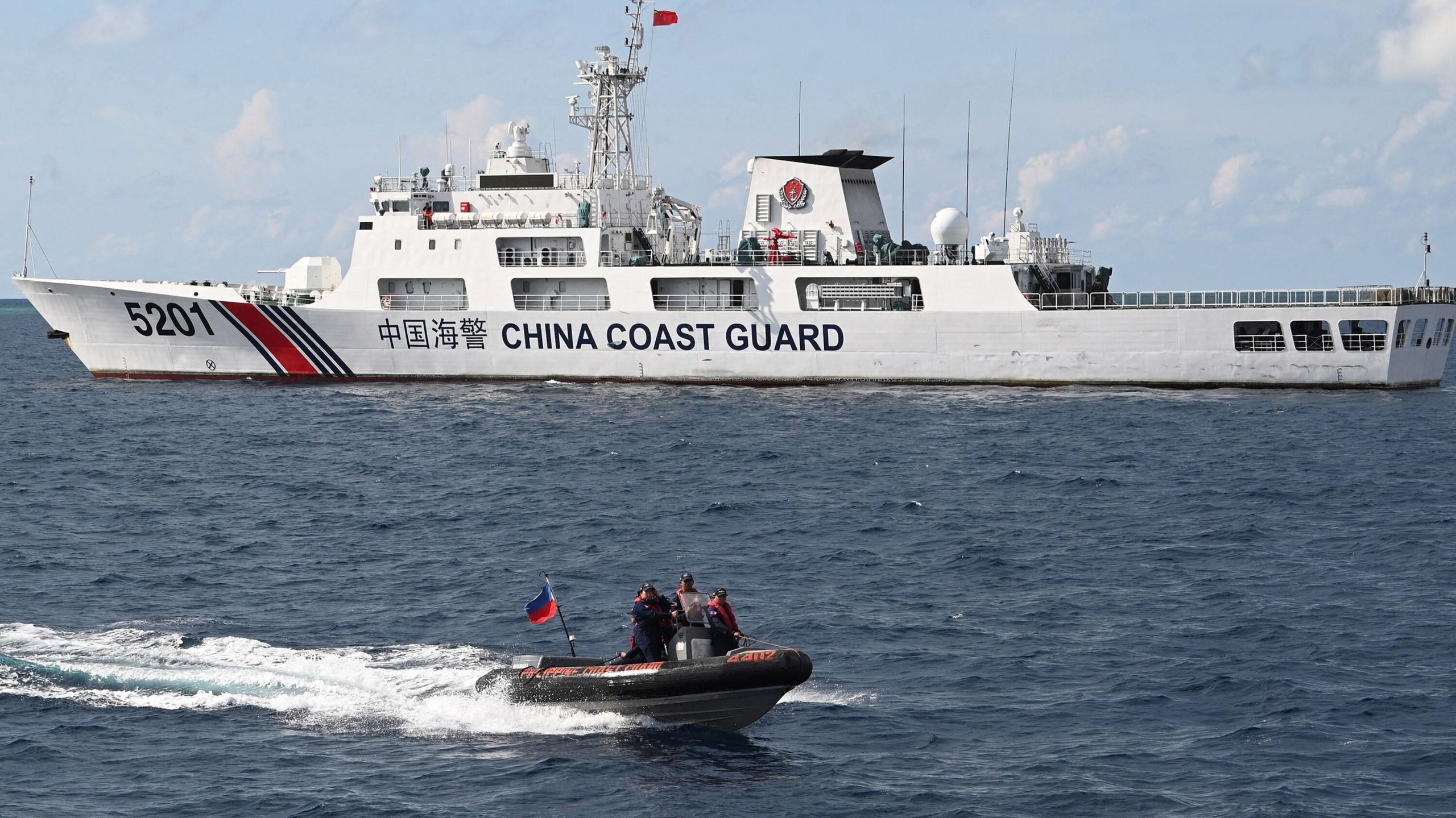- Two Mobile Cooperation Teams were sent to the Marshall Islands and Micronesia in January to boost Japanese coastguard operations in the Pacific
- First set up in 2017 to counter China’s growing influence, the initiative could be expanded further, analysts say, as ‘the US can’t do it all alone’
Japan‘s coastguard has extended an initiative designed to help other nations’ counter Chinese expansion in the South China Sea to two Pacific island countries: the Marshall Islands and Micronesia.
The Mobile Cooperation Team (MCT) initiative was first set up in 2017 as part of Tokyo’s efforts to train and equip the coastguards of Southeast Asian nations that felt threatened by China’s presence in the disputed waterway.
With Beijing actively looking to expand its sphere of influence further into the Pacific, Japan has now enlarged the project and two MCT units were dispatched on one-week missions to the Marshall Islands and Micronesia in January, the Yomiuri newspaper reported on Sunday.
Do you have questions about the biggest topics and trends from around the world? Get the answers with SCMP Knowledge, our new platform of curated content with explainers, FAQs, analyses and infographics brought to you by our award-winning team.
The initial sessions involved exercises to locate and rescue small groups of people adrift at sea and lectures on international law for more than 60 local officials, the paper reported, with a senior official of the Micronesian maritime police expressing hope that further exchanges would be possible in the future.
“The primary reason that the Japan Coast Guard first set up these units was to compete with Chinese efforts to increase the presence of their coastguard units in the South China Sea,” said Masafumi Iida, a leading China analyst at the National Institute of Defence Studies in Tokyo.
More recently, China has been actively expanding its areas of influence into the Pacific islands and the creation of an MCT specifically for this region is a reflection of that Chinese expansion,” he told This Week in Asia.
The Mobile Cooperation Teams have provided assistance on 105 missions to 20 countries since their creation seven years ago, advising local officials on how to conduct stop-and-search operations at sea, arrest techniques and methods to prevent oil spills from worsening. They have also offered advice on dealing with pirates and search-and-rescue operations.
A February mission to Indonesia included programmes on improving maritime law enforcement capabilities.
Japanese officials would provide similar support to the Pacific nations, Iida said, as well as capacity-building and lectures on international maritime law, while Japan’s assistance could also be expanded to include the provision of patrol vessels.
Japan, the United States, Australia and New Zealand are all concerned that Beijing is “picking off” strategically important island groups across the Pacific, often with generous offers of financial aid, according to Stephen Nagy, a professor of international relations at Tokyo’s International Christian University.
“Japan has seen the Chinese coastguard operating in the South China Sea and treating those waters as its own domestic territory, conducting enforcement actions against the Philippines as if this is a domestic situation,” he said. “Japan does not want to escalate the situation by sending ‘grey hulls’ [warships] so the coastguard is being used instead.”
Japan and other regional governments have been “deeply concerned” about the security agreement that Beijing signed with the Solomon Islands in 2022, with that worry heightened by reports that China now intended to establish a port facility there, Nagy said, primarily because it would be easy for Chinese navy and coastguard units to later use the port.
“Nauru has just switched its allegiance to China and there is concern that other holdouts could similarly be convinced to turn towards Beijing,” he said.
Japanese Prime Minister Fumio Kishida held talks in Washington with President Joe Biden earlier this month, during which 70 bilateral agreements were reached across a wide range of issues. But, Nagy points out, there is a “clear trend for Japan to take up more of the burden in its own backyard specifically to free the US up to focus its resources on Taiwan”.
“The US can’t do it all alone,” he said, adding that Japan would also have consulted Australia, New Zealand and other regional governments on the expansion of its MCT programme, which could potentially turn into a multilateral effort in the future.
According to Nagy, one area Pacific nations are particularly keen to receive assistance on is in dealing with illegal, unreported and unregulated fishing within their territorial waters by fishing boats – often Chinese – that “go dark” by turning off their location transponders to avoid detection while they operate illegally.
“This is going to be a big area of cooperation with Japan because these Pacific states are concerned about the depletion of their fisheries and food security,” he said.
“There is a strongly held view in Tokyo that everything that can be done must be done to prevent the Pacific islands states from falling into the Chinese camp as this would allow the exploitation of their vast EEZs [exclusive economic zones] and, potentially, threaten the shipping routes across the Pacific.”

